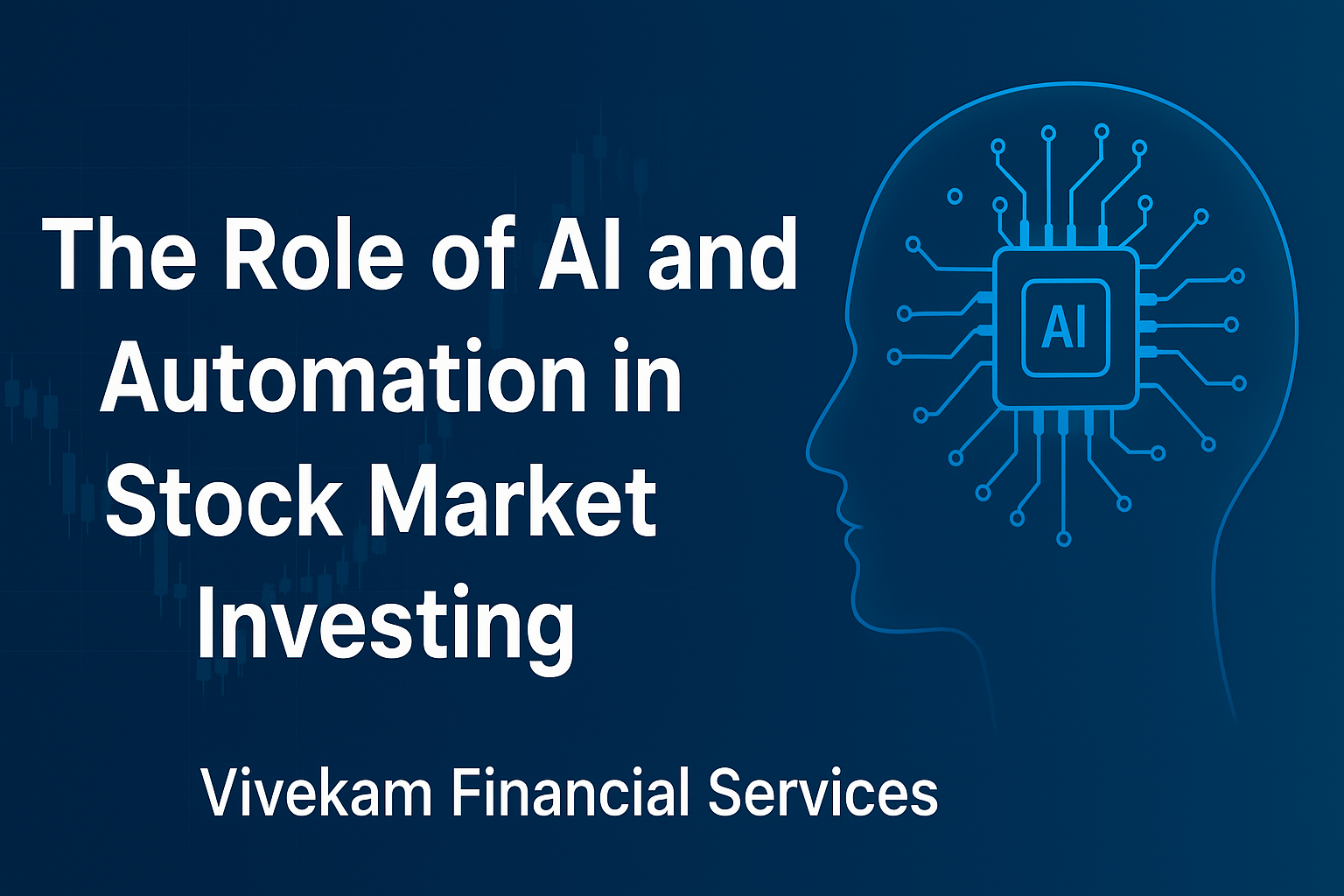The Role of AI and Automation in Stock Market Investing
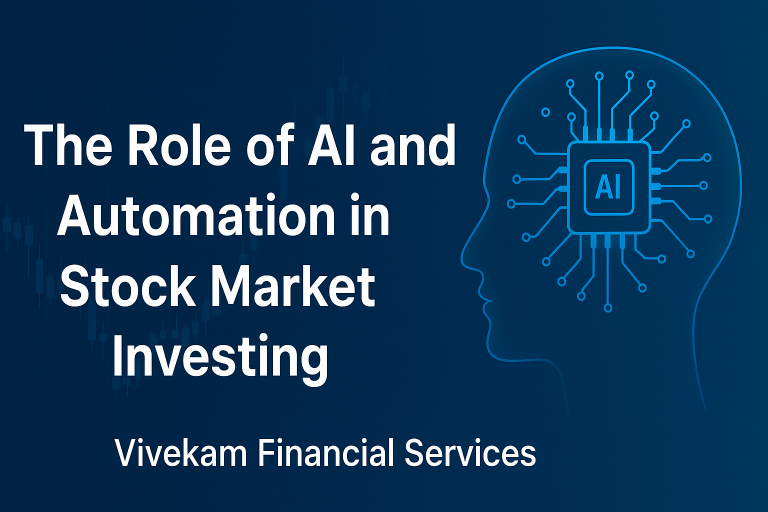
Introduction: Why Robots Are Beating You at Investing
Picture this: while you’re sipping coffee and scanning stock charts, an algorithm has already analyzed millions of data points, predicted a price swing, and executed trades—all before you blink.
Artificial intelligence (AI) and automation have changed the investing game. Wall Street hedge funds have been exploiting these tools for decades, but now everyday investors are finally catching on. The result? A market where speed, precision, and data-driven decisions dominate.
If you’re still relying on gut instincts and CNBC soundbites, you’re already a step behind. Let’s explore how AI and automation are reshaping stock market investing—and what it means for your portfolio.
Evolution of Stock Market Investing
From Brokers to Algorithms
Once upon a time, investing meant calling your broker and placing orders manually. Then came online platforms like E*TRADE and Robinhood, giving retail investors direct access to markets. But convenience wasn’t the endgame—automation was.
Rise of Algorithmic Trading
By the 2000s, algorithms began taking over. These programs could scan markets, spot inefficiencies, and place trades in fractions of a second. Today, over 60% of U.S. equity trades are driven by algorithms, proving just how far we’ve come from “buy low, sell high.”
How AI is Changing Stock Market Investing
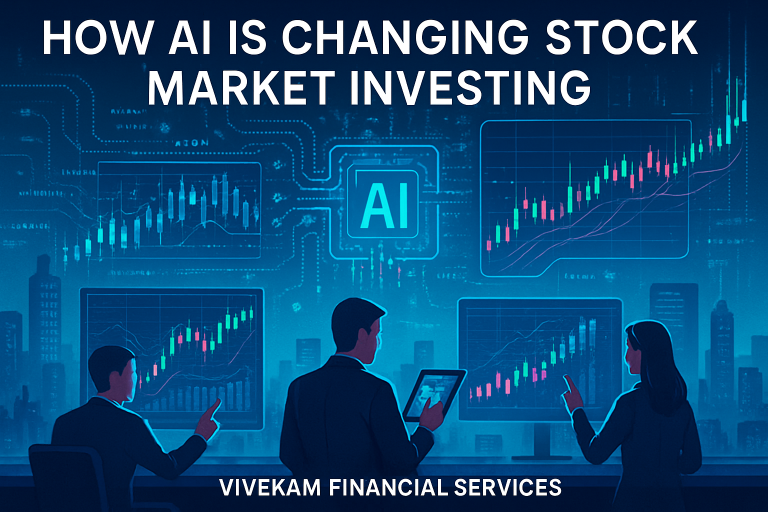
Predictive Analytics: The New Crystal Ball
Hedge funds like Renaissance Technologies and Two Sigma rely on AI models to forecast stock movements. By analyzing price histories, economic data, and even weather patterns, predictive analytics provide probabilities—not guarantees—but enough edge to outsmart most human traders.
For retail traders, tools like Trade Ideas or Tickeron bring similar predictive insights at a fraction of the cost.
Sentiment Analysis: Reading Between the Headlines
Markets don’t just react to numbers—they react to news and emotions. AI can scan thousands of tweets, news reports, and earnings transcripts to gauge sentiment. If social media tilts bearish on Tesla, an AI-powered bot may adjust positions instantly, long before the average investor reacts.
Risk Management: Smarter Safety Nets
AI isn’t only about profits. It also helps protect portfolios by detecting unusual volatility and automatically rebalancing to reduce exposure. Platforms like Wealthfront use AI-driven models to adjust allocations based on market conditions and personal risk tolerance.
Automation in Modern Investing
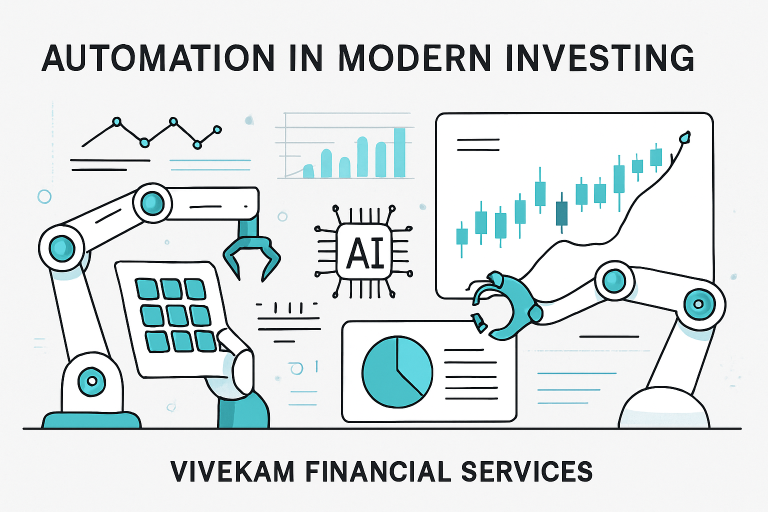
Robo-Advisors: Investing on Autopilot
Platforms like Betterment and Wealthfront manage billions in assets using automated rebalancing, tax-loss harvesting, and AI-driven diversification. For beginners, this means a hands-off investing experience with lower fees than traditional advisors.
High-Frequency Trading: The Formula One of Finance
High-frequency trading (HFT) systems execute thousands of trades in milliseconds. While HFT provides market liquidity, it also creates volatility. The infamous 2010 Flash Crash was largely blamed on runaway algorithms, proving automation can cut both ways.
Portfolio Rebalancing: No More Guesswork
Instead of manually shifting your assets, automation ensures your portfolio stays aligned with your goals. For instance, if stocks rally and your equity allocation grows too high, automated systems sell some shares and buy bonds to keep your risk balanced.
Benefits of AI and Automation
- Speed & Efficiency – Machines trade in microseconds; humans never will.
- Data-Driven Insights – AI can analyze billions of data points in real time.
- Lower Costs – Automation reduces human labor, cutting fees for investors.
- Accessibility – What was once exclusive to hedge funds is now in the hands of everyday traders.
The Risks and Drawbacks
- Over-Reliance on Algorithms – Blindly trusting bots can be dangerous.
- Market Volatility – Automated systems can trigger sudden crashes.
- Ethical & Regulatory Issues – AI-driven trading raises questions about transparency and fairness.
Remember: automation amplifies both gains and mistakes.
Humans vs. Machines: Who Wins?
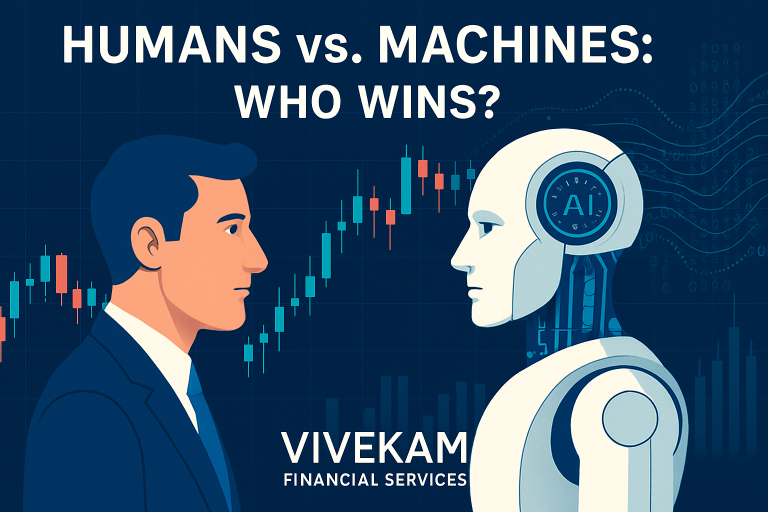
Why Humans Still Matter
AI can crunch data, but it can’t interpret a Federal Reserve press conference or predict a geopolitical crisis with nuance. Human judgment still provides context and emotional intelligence.
The Hybrid Future
The smartest investors use a hybrid approach—AI for speed and analysis, humans for strategy and big-picture thinking. In other words, let the bots crunch numbers, but keep your hands on the wheel.
The Future of AI in Investing
- AI-Powered Hedge Funds – Already managing billions with machine learning.
- Retail Investors Using AI – Robo-advisors are growing at double-digit rates annually.
- More Regulation – Expect tighter oversight to prevent flash crashes and algorithm abuse.
- Personalized Investing – AI will eventually tailor portfolios not just to risk, but to lifestyle, spending habits, and even health data.
FAQs
Q1. Can AI really predict stock prices?
Not exactly. AI improves the odds by finding patterns, but no system can guarantee profits.
Q2. Are robo-advisors worth it?
Yes—for most beginners, they offer diversified, low-cost portfolios without the stress of manual trading.
Q3. What’s the biggest risk of AI in investing?
Over-reliance. When everyone uses similar models, small shocks can cascade into major crashes.
Q4. Do hedge funds really trust AI?
Absolutely. Firms like Renaissance Technologies built empires using machine learning and predictive modeling.
Q5. Will AI replace financial advisors?
Not completely. AI will handle routine tasks, but human advisors still shine in emotional, long-term planning.
Q6. How can retail investors start using AI?
Start with robo-advisors, AI stock screeners, or platforms like Trade Ideas that provide algorithm-driven trade suggestions.
Conclusion
AI and automation have already rewritten the rules of investing. From robo-advisors managing your retirement fund to hedge funds running billion-dollar machine learning strategies, the future of finance is algorithm-driven.
But here’s the truth: AI isn’t here to replace humans—it’s here to challenge them. Investors who learn to work with AI will thrive. Those who ignore it? They’ll be left behind.

